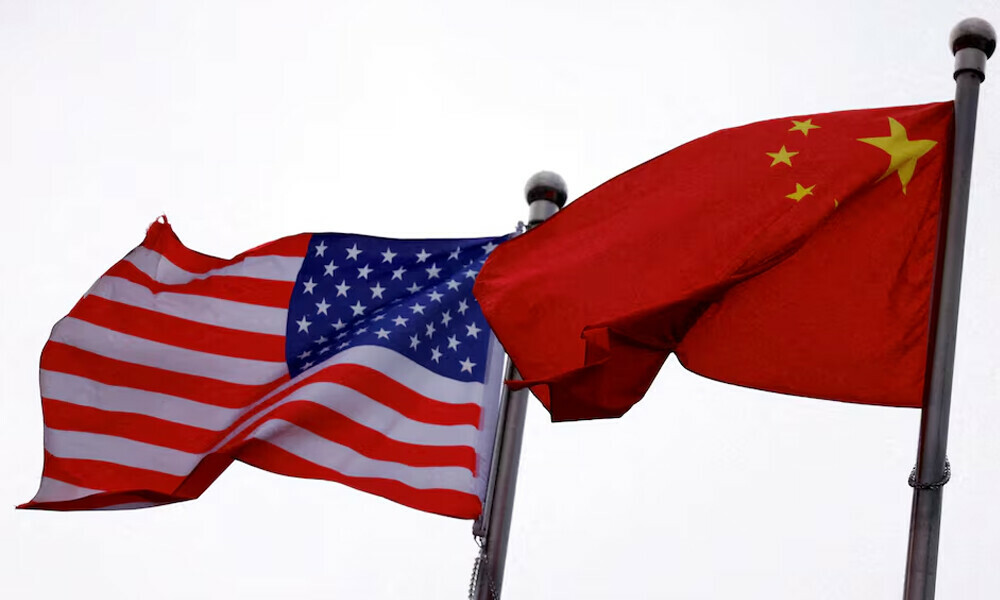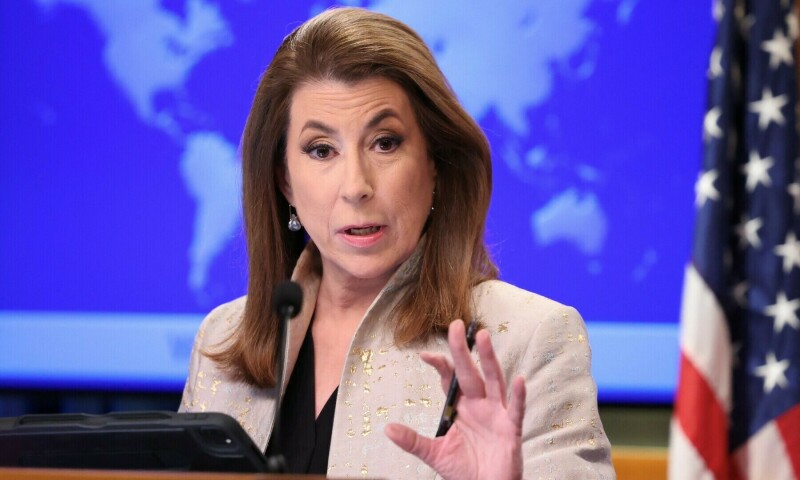WORLD NEWS

The trade war between the U.S. and China has reached a pivotal point as Beijing prepares to engage in high-stakes talks following a new round of U.S. tariffs on Chinese goods. The latest moves by the Trump administration have led to escalating public rhetoric in China, but behind closed doors, Chinese officials are growing increasingly concerned about the economic impact of these tariffs and the potential risks of global isolation.
Rising Economic Pressures
Since U.S. President Donald Trump imposed hefty tariffs on China last month, Beijing's public response has been defiant, with state media posting images of Mao Zedong and harshly criticizing “imperialists.” However, behind the scenes, the economic consequences of the trade war have become a growing concern for Chinese officials. Reports suggest that Chinese companies are struggling to replace the U.S. market, with sectors like furniture, toys, and textiles feeling immediate pressure.
With factory closures and job losses mounting, particularly in southern China’s industrial zones, China’s leadership has become more open to discussions. The escalating tensions have prompted China’s economic tsar, He Lifeng, to engage in talks with U.S. counterparts in Geneva this weekend.
Fractious Diplomatic Landscape
Despite the move toward dialogue, the road to talks has been fraught with difficulties. Diplomatic tensions have been high, particularly after the U.S. sent a letter to China in late April demanding action on fentanyl. The letter was seen as "arrogant" by Beijing, which felt the U.S. was overstepping by dictating internal policies. This friction compounded existing mistrust, delaying talks and creating hurdles to re-engagement.
Despite the challenges, the U.S. and China have communicated at multiple levels in recent weeks, including informal exchanges at the International Monetary Fund meetings and through contacts in Washington. These efforts culminated in a decision to send He Lifeng, a senior Chinese official with direct ties to President Xi Jinping, to meet with U.S. counterparts.
The Economic Toll and Strategic Shifts
The economic toll of the trade war is becoming evident as China faces growing risks of job losses and economic downturns. Investment banks like Nomura have warned that up to 16 million jobs in China could be at risk due to the tariffs. Meanwhile, other countries like Vietnam, India, and Japan have begun negotiations with the U.S., raising fears in Beijing about being sidelined in the global economy.
Faced with these internal pressures, China has shifted its approach. The Geneva talks are now viewed more as preliminary negotiations, focused on understanding U.S. demands and potential compromises.
Fentanyl and the Road to Geneva
One of the most contentious issues in the trade talks is the fentanyl crisis. Trump has repeatedly criticized China for not doing enough to curb the flow of chemicals used in the production of fentanyl. The U.S. letter sent to China in April outlined a series of demands for Beijing to take stronger action, including increased law enforcement cooperation and publicizing efforts to combat the fentanyl trade.
China, however, rejected the allegations, with the Foreign Ministry denouncing the U.S. approach as bullying and interference in internal matters. Fentanyl remains a key issue in the upcoming Geneva talks, and the U.S. is expected to present its demands in the negotiations.
Looking Ahead: Modest Expectations in Geneva
Despite the growing diplomatic tensions, China is expected to approach the Geneva talks with modest expectations. Sources familiar with the talks suggest that Beijing sees the discussions as a way to gauge Washington’s red lines rather than an opportunity for major breakthroughs.
A key area of potential compromise could be the purchase of U.S. agricultural goods, reminiscent of the 2019 Phase One Deal, where China agreed to buy an additional $32 billion worth of agricultural products over two years.
Conclusion
The trade war between the U.S. and China remains one of the most significant global economic challenges. While China’s leadership publicly projects a tough stance, internal economic pressures and the risk of further isolation have led to a willingness to engage in talks. As the Geneva negotiations unfold, the outcome will have significant implications not just for China and the U.S., but for the global economy as a whole.




